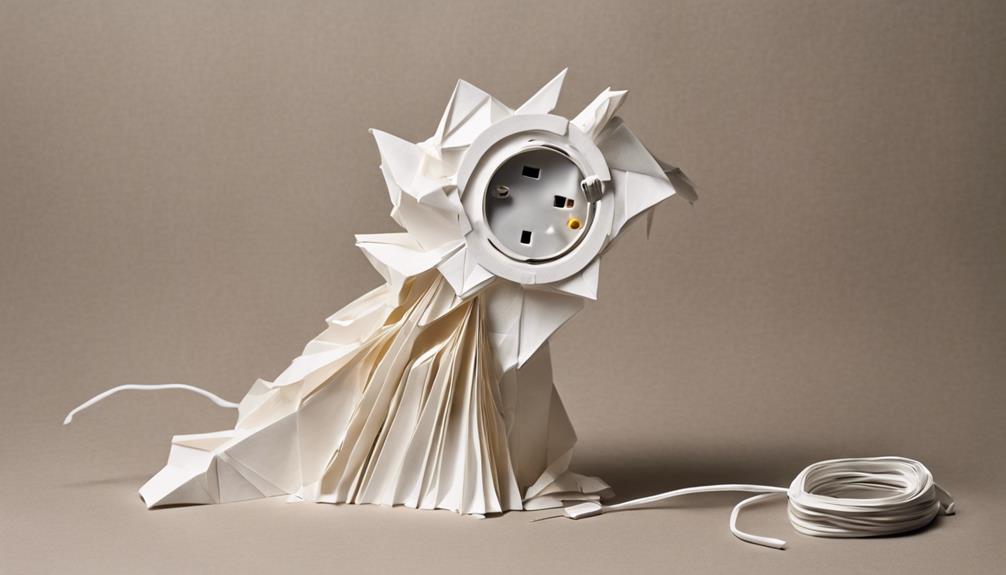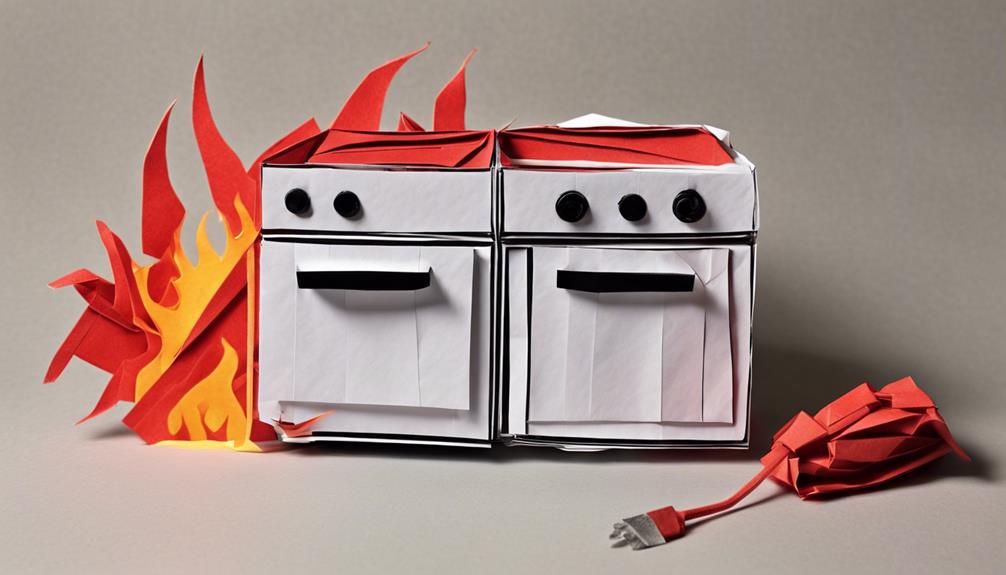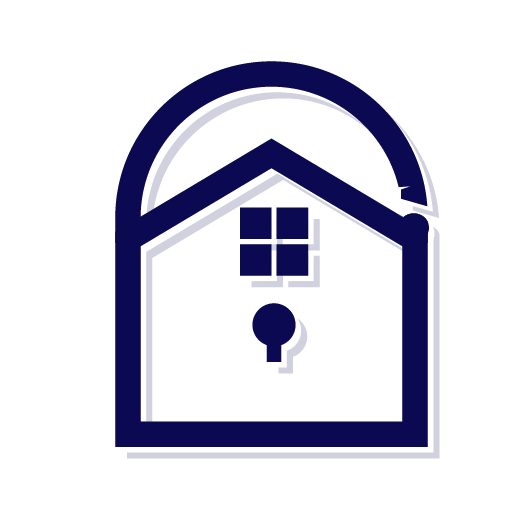Have you ever considered the potential risks that lurk within the walls of your home? Electrical fires pose a significant threat, but understanding how to prevent them is crucial for your safety and that of your loved ones. From simple maintenance tasks to recognizing warning signs, there are steps you can take to minimize the danger. Stay tuned to discover practical strategies that could make all the difference in safeguarding your home from the devastation of electrical fires.
Common Causes of Electrical Fires

When dealing with the common causes of electrical fires, it's crucial to understand the potential risks associated with various everyday electrical appliances and systems. Faulty wiring and outdated appliances pose significant dangers. Faulty wiring can lead to short circuits and overheating, resulting in potential fires. Similarly, outdated appliances may lack modern safety features, increasing the likelihood of malfunctions that could spark fires.
Improper installation is another common cause of electrical fires. If electrical systems are not installed correctly, there is a higher risk of exposed wires, loose connections, and other hazards that can ignite fires. It's essential to always hire qualified professionals for electrical installations to ensure safety.
Overloaded outlets are also a major concern. Plugging too many devices into a single outlet can exceed its capacity, generating heat and potentially causing a fire. Using power strips and extension cords properly can help distribute the electrical load evenly and prevent overloading. Regularly inspecting outlets for signs of overheating or damage is crucial in avoiding electrical fires.
Importance of Regular Maintenance
Regular maintenance of your electrical systems is crucial to prevent potential fire hazards. By scheduling regular checks and servicing, you can save yourself from costly repairs or worse, dangerous fires. Take proactive steps to ensure that your electrical system is well-maintained and safe for everyday use.
Regular Maintenance Saves
To ensure the safety of your home and prevent electrical fires, it is essential to prioritize regular maintenance checks on your electrical systems. Regular maintenance not only saves you money in the long run by preventing costly repairs but also ensures that your electrical systems are functioning efficiently and safely. By conducting routine inspections, you can identify potential hazards early on and address them promptly, reducing the risk of electrical fires. Additionally, regular maintenance extends the lifespan of your electrical appliances and wiring, providing you with peace of mind. Stay proactive and schedule regular check-ups to keep your home safe and secure.
| Benefits of Regular Maintenance | Importance |
|---|---|
| Prevents costly repairs | High |
| Ensures safety | High |
| Identifies hazards early | Medium |
| Extends lifespan of appliances | Medium |
Prevention Through Checks
Ensuring the safety and efficiency of your home's electrical systems requires consistent and thorough maintenance checks. Electrical safety should be a top priority to prevent fires and protect your property. Regular inspections of wiring, outlets, and appliances can help identify any potential hazards before they escalate. Look out for frayed wires, overloaded circuits, or unusual odors emanating from electrical sockets. It's crucial to address any issues promptly to avoid the risk of electrical fires. Schedule annual check-ups with a qualified electrician to ensure that your home meets safety standards. Taking proactive measures through routine maintenance not only safeguards your home but also provides peace of mind knowing that you've taken steps to prevent potential dangers.
Signs of Electrical Hazards

Identifying signs of electrical hazards is crucial for maintaining a safe environment in your home or workplace. Here are some warning signs that indicate potential electrical hazards:
- Flickering Lights: If you notice your lights flickering or dimming unexpectedly, it could be a sign of loose wiring or overloaded circuits.
- Hot Outlets or Switches: Touch your outlets and switches occasionally. If they feel hot to the touch, there may be an underlying electrical issue that needs attention.
- Burning Smell: A persistent burning smell, even if faint, could be a sign of overheating wires or electrical components.
- Sparks or Electrical Shocks: Seeing sparks when you plug in an appliance or experiencing small electrical shocks when using an electronic device are clear indicators of potential hazards.
Proper Use of Extension Cords
When using extension cords, ensure they are the appropriate length and capacity for your needs to prevent overheating and potential fire hazards. Always inspect cords for any signs of damage like fraying or exposed wires before each use. To avoid overloading circuits, never plug multiple high-wattage appliances into a single extension cord.
Length and Capacity
To ensure the safe and proper use of extension cords, it is crucial to understand their length and capacity when connecting multiple devices. When dealing with extension cords, remember:
- Match the Cord Length to Your Needs: Use a cord that is long enough to reach the outlet without stretching or coiling excessively to prevent overheating.
- Respect the Cord's Capacity: Check the cord's rating in watts or amps to ensure it can handle the combined load of your devices.
- Avoid Overloading: Do not plug multiple high-powered devices into a single extension cord to prevent voltage fluctuations and potential fires.
- Inspect Regularly: Look for signs of wear, exposed wiring, or overheating to ensure the cord is safe for use.
Inspect for Damage
To ensure the safe and proper use of extension cords, it is imperative to thoroughly inspect them for any signs of damage or wear before connecting devices. Inspecting wiring is crucial in preventing electrical fires. Check for frayed or exposed wires, cracks in the insulation, or any discoloration that could indicate overheating. Safety measures must always be a priority when dealing with electrical components. Here is a table to guide you on what to look for when inspecting extension cords:
| Damage to Check | Action to Take |
|---|---|
| Frayed Wires | Replace cord immediately |
| Exposed Wiring | Do not use, discard cord |
| Insulation Cracks | Repair with electrical tape |
| Discoloration | Investigate cause, replace if necessary |
| Loose Connections | Tighten securely |
Avoid Overloading Circuits
Ensure the proper distribution of electrical load by using extension cords responsibly to avoid overloading circuits and reduce the risk of electrical fires. When using extension cords, follow these guidelines:
- Proper Ventilation: Ensure that extension cords are not covered by rugs or furniture to prevent overheating.
- Outlet Placement: Place cords in a way that allows for easy access to outlets and prevents them from being pinched or damaged.
- Avoid Daisy Chaining: Do not connect multiple extension cords together as this can lead to overloading.
- Check Cord Ratings: Make sure the extension cord's power rating matches the device's requirements to prevent overheating and potential fire hazards.
Role of Ground Fault Circuit Interrupters
Ground Fault Circuit Interrupters, commonly known as GFCIs, play a crucial role in preventing electrical fires by quickly shutting off power when they detect a ground fault. The effectiveness of GFCIs lies in their ability to monitor the current flowing through the circuit. When a ground fault occurs, indicating electricity is flowing through an unintended path (like water or a person), the GFCI trips and cuts off power within milliseconds. However, it's essential to understand the limitations of GFCIs. They do not protect against short circuits or overloads, so it's crucial to combine them with circuit breakers for comprehensive protection.
GFCI Installation Tips:
| Tips for GFCI Installation | Description |
|---|---|
| Location is key | Install GFCIs in areas prone to moisture or water exposure. |
| Test regularly | Test GFCIs monthly to ensure they are functioning correctly. |
| Professional installation | If unsure, seek help from a qualified electrician for installation. |
Safety Measures for Appliances

When ensuring the safety of your appliances, it is essential to regularly inspect cords and plugs for any signs of wear or damage. Neglecting this simple task can lead to potential electrical hazards. To maintain appliance safety, follow these crucial steps:
- Check Cords and Plugs: Look for frays, exposed wires, or any visible damage on cords and plugs. Replace them immediately if you notice any issues to prevent electrical fires.
- Avoid Overloading Outlets: Overloading outlets can strain the electrical system and increase the risk of fires. Spread out high-energy consuming appliances to different outlets.
- Unplug When Not in Use: When appliances are not in use, unplug them to reduce the risk of electrical malfunctions and save energy.
- Proper Ventilation: Ensure that appliances like refrigerators, dryers, and ovens have proper ventilation to prevent overheating and potential fire hazards.
Impact of Overloaded Circuits
Inspecting your home's electrical circuits is crucial to understanding the potential dangers of overloading and safeguarding against fire hazards. Circuit safety is paramount to prevent power surges that can lead to disastrous consequences. Overloaded outlets are a common issue that can result in fire hazards. When you plug too many devices into a single outlet or circuit, it can exceed the capacity it was designed for, causing overheating and potential electrical fires. To prevent overloading circuits, distribute your electrical devices across different outlets and circuits. Be mindful of the power requirements of each device to ensure you are not exceeding the limits. Consider using power strips with built-in surge protectors to add an extra layer of safety. Regularly inspect your outlets for any signs of overheating or burning smells, as these could indicate an overloaded circuit. By taking proactive measures to manage your electrical usage, you can significantly reduce the risk of electrical fires in your home.
Practicing Fire Safety in Bedrooms

To ensure fire safety in bedrooms, regularly check and maintain smoke detectors to keep them in working condition. It's crucial to prioritize bedside safety by keeping pathways clear and avoiding clutter, ensuring quick access to emergency exits. Conduct fire drills regularly to practice swift and efficient evacuation procedures. Make sure smoke alarms are installed not just in the bedroom but also in the hallway leading to it for added safety measures.
Fire Safety Checklist for Bedrooms:
- Smoke Detectors: Test them monthly and replace batteries at least once a year.
- Bedside Safety: Keep flammable items away from heat sources and ensure easy access to exits.
- Emergency Exits: Ensure windows can be easily opened and screens can be removed if needed.
- Fire Drills: Practice different escape routes and meeting points with all household members.
Implementing Emergency Response Plans
Ensure your household is well-prepared for any emergency by implementing detailed and comprehensive emergency response plans. Start by conducting emergency drills regularly to familiarize everyone with evacuation procedures and safety protocols. These drills should include practicing different scenarios such as fires, power outages, or medical emergencies to ensure that all family members know what to do in each situation.
Response training is crucial in preparing for emergencies. Make sure that everyone in your household knows how to use fire extinguishers, where to locate emergency supplies, and how to shut off utilities like gas and electricity if needed. Consider enrolling in first aid and CPR courses to enhance your response capabilities in medical emergencies.
Additionally, create a communication plan that includes emergency contact numbers, meeting points, and a way to stay informed during a crisis. Regularly review and update your emergency response plans to account for any changes in your household or living situation. By being proactive and prepared, you can effectively handle emergencies and keep your loved ones safe.
Frequently Asked Questions
Can Using Surge Protectors Help Prevent Electrical Fires?
Using surge protectors, like power strips or extension cords, can definitely help prevent electrical fires. They safeguard your devices from voltage fluctuations and power surges, reducing the risk of overheating and potential fires. By investing in surge protectors and using them correctly, you can create a safer environment for your electrical devices and home. Remember, prevention is key when it comes to electrical safety!
Are There Specific Types of Electrical Appliances That Are More Prone to Causing Fires?
When considering the types of electrical appliances that are more prone to causing fires, it's crucial to pay special attention to kitchen appliances and power strips. These devices, due to their frequent use and high power consumption, can pose a higher risk of electrical fires. Being mindful of proper maintenance, avoiding overloading power strips, and keeping kitchen appliances clean and in good condition can significantly reduce the chances of fire hazards in your home.
How Can Outdoor Electrical Hazards Be Identified and Prevented?
When it comes to outdoor wiring, it's crucial to keep an eye out for any exposed wires or damaged insulation that could pose a hazard. Installing weatherproof outlets can also help prevent electrical hazards. Regularly inspecting your outdoor electrical setup and ensuring everything is up to code can go a long way in keeping you safe. Taking these proactive measures can help you enjoy your outdoor spaces without worrying about potential electrical dangers.
What Steps Should Be Taken to Ensure the Safety of Pets in Case of an Electrical Fire?
When it comes to ensuring pet safety during an electrical fire, swift action is key. Begin by establishing a designated pet evacuation plan. Keep essentials like leashes, carriers, and pet supplies easily accessible. Practice emergency pet care routines regularly to ensure everyone knows their role. In the event of a fire, prioritize pets' safety by evacuating them promptly and safely. Preparedness is the best defense when it comes to protecting your furry companions.
Are There Any Regulations or Guidelines for Electrical Safety in Commercial Buildings?
When it comes to regulations and guidelines for electrical safety in commercial buildings, building codes and safety standards play a crucial role. These codes are put in place to ensure that electrical systems in commercial spaces meet specific safety requirements. By adhering to these regulations, you can help prevent potential hazards and ensure the safety of everyone in the building. It's essential to stay informed and compliant with these standards to maintain a secure environment.



